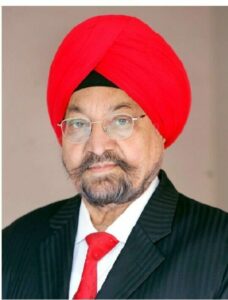
The American Association of Physicians of Indian Origin (AAPI) has grown from strength to strength since its inception in 1982. Through its dedication to medical education, healthcare advancement, social involvement, and cultural promotion, AAPI has become a cornerstone of support and leadership within the medical community. The organization’s contributions extend far beyond clinical practice, encompassing education, research, advocacy, and humanitarian efforts that enrich the lives of its members and the communities they serve. As AAPI continues to evolve, it remains committed to its founding principles of excellence, service, and collaboration, ensuring a brighter and healthier future for generations to come.
AAPI has undoubtedly faced its share of challenges and internal strife despite its commendable achievements and contributions to the medical community. Over the years, as the organization grew in size, influence, and financial stability, it also became a battleground for internal politics and power struggles. This has resulted in a stark division within AAPI, with competing factions vying for control and influence within the organization.
The competition for leadership positions and influence has unfortunately overshadowed the core mission and objectives with which AAPI was originally founded. Instead of focusing on service to the community, professional excellence, and advocacy for healthcare issues, some members have been engaged in bitter rivalries that have led to animosity and division.
At present, AAPI finds itself at a critical juncture, with significant discord between opposing camps within the organization. This internal strife has not only tarnished the organization’s reputation but also undermined its effectiveness in serving its members and the broader healthcare community. The atmosphere of conflict and mistrust detracts from the noble goals of AAPI and hampers its ability to fulfill its mission of promoting health, education, and cultural understanding.
It is imperative that influential members of AAPI intervene to mediate and reconcile the warring factions. Leaders within the organization must emphasize the importance of unity, professionalism, and mutual respect. They should remind all members of their shared commitment to serving the community through their professional skills and dedication to patient care.
There is a pressing need for a cultural shift within AAPI towards fostering a supportive and collaborative environment. Instead of viewing leadership positions as trophies to be won or sources of power, members should prioritize collective goals and cooperative efforts to advance healthcare and educational initiatives.
Addressing the internal divisions requires a concerted effort to promote transparency, accountability, and inclusivity within AAPI. Open dialogue, constructive engagement, and adherence to ethical standards are essential to rebuilding trust and restoring the organization’s integrity.
To heal from the current discord, AAPI members must rise above personal ambitions and factional interests. They must embrace a higher sense of responsibility towards the organization’s founding principles and the greater good of the communities they serve. This includes advocating for healthcare policies, supporting professional development, and actively participating in community outreach programs without the distraction of internal conflicts.
While AAPI has faced internal challenges and divisions, it possesses the resilience and potential to overcome these obstacles. By prioritizing unity, professionalism, and service to the community, AAPI can reclaim its reputation as a leading advocate for physicians of Indian origin in the United States. It is time for honorable physicians within AAPI to reflect on their shared values, mend their internal divisions, and reaffirm their commitment to excellence in healthcare and cultural enrichment. Only through collective efforts and mutual respect can AAPI continue to thrive and uphold its vital mission in the years to come.